- Home
- About
- Hospitals
-
Treatments
- Orthopedic & Spine
- Knee Replacement
- Carpal Tunnel Release
- Rotator Cuff Repair
- Meniscus Repair / Meniscectomy
- Total Hip Replacement (THR)
- Total Shoulder Replacement
- Arthroscopy
- Ligament Reconstruction
- Spinal Fusion
- Discectomy
- Laminectomy
- Spinal Decompression
- Vertebroplasty and Kyphoplasty
- Fracture Repair
- ACL Reconstruction
- Tendon Repair
- Osteotomy
- Amputation
- Pediatric and Adult Cardiac
- Neuroscience
- Oncology
- Nephrology & KTP
- Gastroenterology & Hepatobiliary
- Obstetrics and Gynaecology
- Infertility
- Dental & Maxillofacial
- Plastic & Cosmetic Surgery
- Rhinoplasty
- Blepharoplasty (Eyelid Surgery)
- Facelift (Rhytidectomy)
- Breast Augmentation (Mammoplasty)
- Breast Reduction (Mammoplasty)
- Breast Lift (Mastopexy)
- Liposuction
- Abdominoplasty (Tummy Tuck)
- Brazilian Butt Lift (BBL)
- Lip Augmentation
- Breast Reconstruction
- Cleft Lip and Palate Repair
- Scar Revision
- Burn Reconstruction
- Botox Injection
- Ophthalmology
- Otolaryngology (ENT)
- Endocrinology
- General and Minimal Invasive Surgery
- Pulmonology
- Rheumatology
- Urology
- General Medicine
- Ayurvedic Treatment
- Orthopedic & Spine
- Doctors
- Contact Us
Chemotherapy
Chemotherapy is a
medical treatment that uses powerful drugs to target and destroy cancer cells
in the body. It is one of the primary treatment modalities for cancer, and it
can be used to treat various types of cancer at different stages. Chemotherapy
works by interfering with the cancer cells' ability to grow and divide.
Here are
key points about chemotherapy:
Purpose: Chemotherapy is used for several purposes, including:
- Curative intent: To eliminate cancer cells completely.
- Adjuvant therapy: To destroy any remaining cancer cells after surgery or other
treatments.
- Neoadjuvant therapy: To shrink tumors before surgery or radiation therapy.
- Palliative care: To relieve symptoms and slow the progression of advanced or metastatic cancer.
Types:
Chemotherapy drugs come in many different forms, and they can be administered
through various methods, including:
- Intravenous (IV) infusion
- Oral medications (pills or capsules)
- Injections
- Topical creams or ointments
Combination Therapy: Chemotherapy is often used in combination with other cancer
treatments, such as surgery, radiation therapy, immunotherapy, or targeted
therapy. This multidisciplinary approach can improve treatment outcomes.
Cycles and Courses: Chemotherapy is typically administered in cycles with periods of
treatment followed by rest. The specific duration and number of cycles depend
on the cancer type, stage, and the patient's response to treatment.
Side Effects: Chemotherapy can cause a range of side
effects. Common side effects include:
- Nausea and vomiting
- Fatigue
- Hair loss
- Anemia (low red blood cell count)
- Reduced immunity (increased risk of infections)
- Mouth sores
- Changes in appetite and weight
Targeted Therapy: Targeted chemotherapy drugs are designed to specifically target
certain molecules or pathways involved in cancer growth. This approach can be
more precise and may have fewer side effects than traditional chemotherapy.
Adverse Effects on Healthy Cells: Chemotherapy can also affect healthy cells in the body, leading to
some side effects. However, normal cells often recover once treatment is
completed.
Monitoring and Support: Patients undergoing chemotherapy are closely monitored by their
healthcare team to manage side effects and adjust treatment if necessary.
Supportive care is often provided to manage symptoms and improve the patient's
quality of life during treatment.
Chemotherapy Drugs: There are numerous chemotherapy drugs available, and the specific
drugs used depend on the type of cancer and the treatment plan. Common
chemotherapy drugs include cisplatin, paclitaxel, doxorubicin, and many others.
Patient-Centered Care: The choice of chemotherapy and its administration is personalized to
each patient's condition, taking into account the type and stage of cancer,
overall health, and individual preferences.
Chemotherapy is a potent tool in the fight against cancer, and it has
been successful in treating and curing many cancer patients. However, it can
also be associated with side effects, and the treatment experience varies from
person to person. Patients should have open and honest discussions with their
healthcare team to understand the benefits, risks, and expected outcomes of
chemotherapy in their specific case.
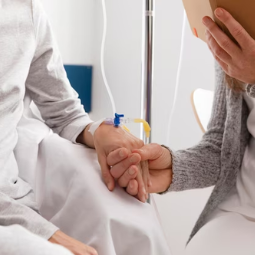



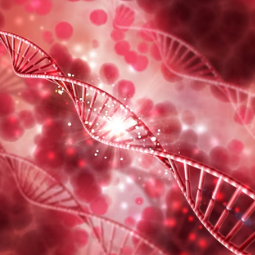

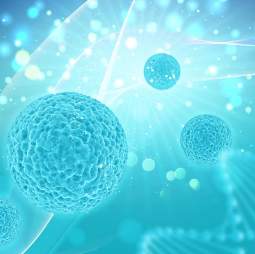
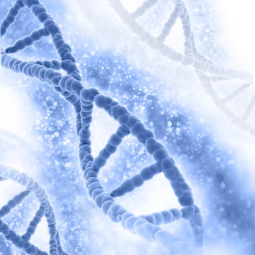
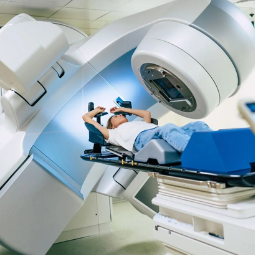

.png)